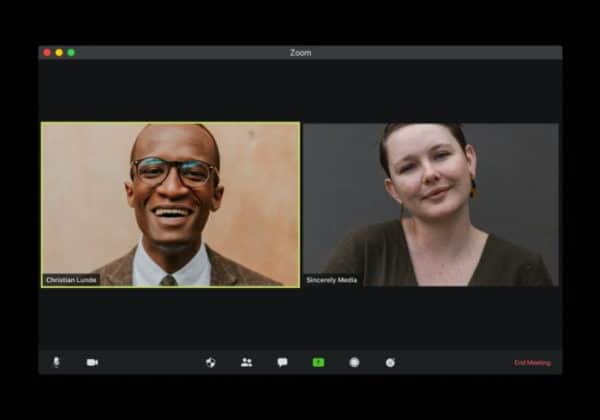Think about the way you hired an employee last year. You almost certainly met in person and conducted conversations face-to-face. Fast forward to 2020, where many of our meetings are virtual. Hiring is different – especially job negotiations.
You would think that because everything is online, the process would be easier. Meetings happen faster and you can catch someone alone to talk about a new job.
Not so fast. The hiring process is more difficult than our recruiters have seen in years.
“Every aspect of acquiring new talent is different from the initial phone screen to negotiations, which need to be handled with care.
We see hesitancy from passive talent to make a move from secure long-term jobs into something new. This mindset often leads to analysis paralysis on every detail of the new position,” says Talentfoot Executive Senior Partner Sue Hardek.
Job negotiations have always been an art unto themselves. The virtual world changed the rules for this artistry.
We modeled these new rules from our executive recruiters’ firsthand experiences matching top talent with new positions in the midst of the pandemic. Additionally, we listened to the Harvard Business Review Idea Cast podcast, Adopting Negotiations to a Remote World.
Rule Number 1: Build Virtual Trust
Trust is an essential aspect of any negotiation. When it comes to hiring a new employee, this person is making a leap of faith – especially during uncertain times. Trust between candidates and the hiring manager is vital.
In the HBR Idea Cast podcast, Leigh Thompson, a negotiations professor at Kellogg School of Management at Northwestern University, offered this advice, “When we do it virtually, trust is initially built on what we call your cognitive competence, which is a fancy way of saying, do I think Curt knows what he’s talking about? And maybe Curt is saying, gosh, does Leigh seem to have her act together on the substantive issue?”
To build virtual trust, you need to show the other party you care about them as an individual. That means listening closely to your potential employee’s concerns about moving to a new position and addressing them.
Simple, but essential advice: pay attention and be honest. If you want to squash hesitancy, genuine, truthful conversations are key. Learn about the prospective hire’s interests, family, what they want out of life and their profession.
Rule Number 2: Video is Critical
Zoom fatigue is real. Not all meetings need to be held between video screens, but when it comes to job negotiations, this format will help your cause.
According to Thompson, author of Negotiating the Sweet Spot: The Art of Leaving Nothing on the Table, “One of the things that I’ve been experiencing on our new meetings, is that people tend to turn off cameras.
“In our research, we did an experiment where we had people negotiate, this was all I believe over email, and sometimes they had a little thumbnail picture of themselves, and sometimes they didn’t. And it was quite profound how that, even a still picture of yourself led to more sweet spot, win/win outcomes than when people were not visible at all.”
Your goal is to build trust, and video will support that goal.
Rule Number 3: Slow Down
All the players from candidates to hiring managers to businesses looking to secure new talent have, in some ways, moved at a slower pace.
Candidates want to move slower because leaving a sure thing for an unknown is more daunting than usual. So, hiring managers and recruiters need to answer any and all questions confidently and frequently make reassurances.
Thompson recommends returning to the schmooze, “A significantly greater percentage of people were able to reach an agreement, and among those who reached an agreement, the people who had, quote, schmoozed, reached much better deals in terms of a win/win metric. They found the sweet spot.”
Don’t rush into the meat of a meeting. Take time to exchange pleasantries and chatter. Though it may feel like you are “wasting” time, you are building rapport.
Relationships Still Matter
It goes without saying, but we’ll remind you anyway: relationships with candidates need to be nurtured. Even though most, if not all, of your meetings are currently held through the computer screen, find a way to build comradery with your candidates. Take the time to get to know them on a personal level.
We are separated physically, so make it your mission to forge personal connections virtually.




